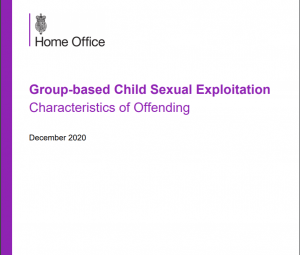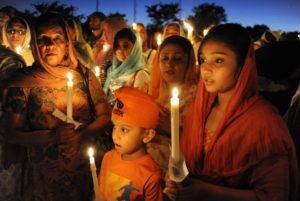
The Home Office’s research paper into ‘Group-based Child Sexual Exploitation Characteristics of Offending’ was published earlier this week, but it fails to acknowledge one of the well evidenced motivations behind grooming gangs like those in Rochdale and Rotherham – the religion and culture of the perpetrators.
The report talks of ‘othering’ of victims to justify abuse but fails to accept this also involves ‘othering’ of non-Muslim girls who are considered fair game and worthless. Their abuse is justified by the perpetrators because they are considered inferior. This religion-linked justification empowers the perpetrators who feel they have impunity, whilst sustaining the persecution of the victims. The Home Office’s failure to acknowledge this important driver is most peculiar, given it is clear from the testament of victims (in places like Rotherham), and in the conclusions of the judge in Rochdale, who said the perpetrators targeted their victims because they were outside of their community and religion. In failing to consider this important aspect, the victims have been failed yet again.
For years we’ve highlighted that it’s not only white girls who’ve been targeted by predominantly Pakistani heritage Muslim gangs in street-based sex grooming – it is something that has been an issue for Sikh and Hindu communities for decades, and one that has regrettably triggered vigilante responses by young Sikh men, some of whom have been sent to prison as a result.
Whilst we acknowledge perpetrators come from various ethnic backgrounds, the high-profile cases like Rotherham, Rochdale, Oxford and Telford (to name a few) have involved mainly Pakistani heritage Muslim men and showed a now well-established pattern of criminality which has blighted our country over the last few decades. We understand that it has been difficult to obtain meaningful data on ethnicity of perpetrators, and this has limited the inquiry’s exploration into characteristics of offenders. In fact, in the report’s foreword, Home Secretary Priti Patel writes, ‘Some studies have indicated an over-representation of Asian and Black offenders. However, it is difficult to draw conclusions about the ethnicity of offenders as existing research is limited and data collection is poor.’
We want to reiterate our position on the vague word ‘Asian’ (which has been used in the report several times), which is offensive to Sikhs and Hindus. This issue has at least now been recognised by the Editors’ Codebook – guidelines which accompany the Editors’ Code of Practice, which are rules the reporting print media has to follow, and is regulated by The Independent Press Standards Organisation.
It’s time for the Home Office to accept religiosity is one of the drivers behind high-profile sex grooming gangs. If they choose to turn a blind eye, they not only do a disservice to the victims, but fail to build on perpetrator profiles, which will no doubt assist law enforcement agencies now and in the years to come.
Network of Sikh Organisations





